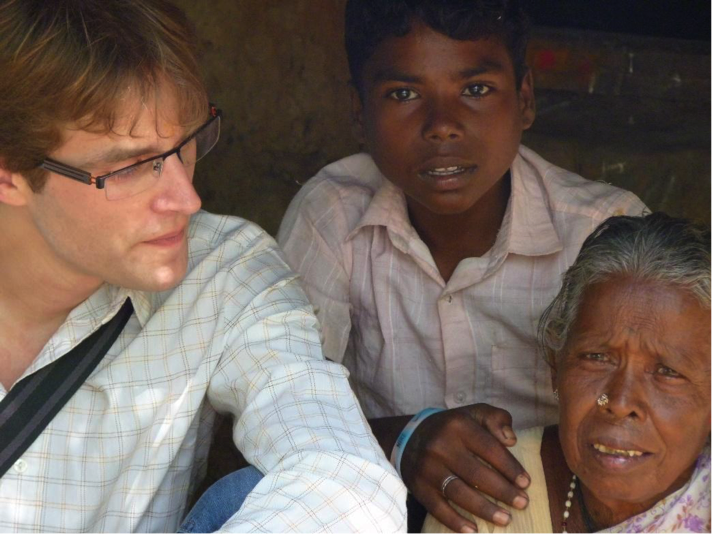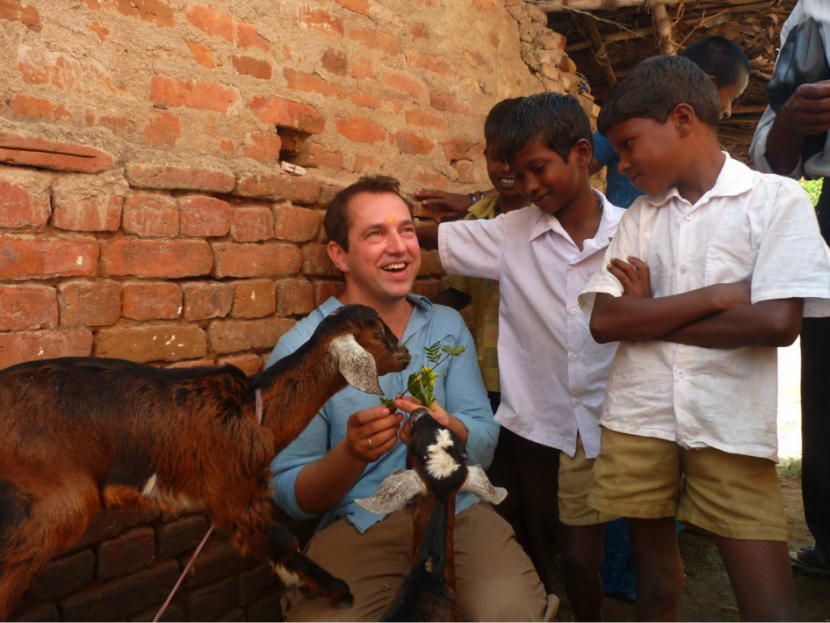I was recently interviewed by my colleagues at Lonza Basel where I work as a data protection lawyer for a couple of days per week in order to keep Humanium as fully volunteer service. They were very interested to find out more about our mission and projects, and I got the opportunity to share more details about our most recent project in India where, together with our local partner Hand in Hand India, we recently opened the Residential Special Training Centre in Madhya Pradesh.
Enjoy the interview!
With a smile,
Arndt Soret, Founder CEO
Meet Arndt Soret from the Legal team of Lonza Basel. In parallel to his work at Lonza, he is also Co-founder and CEO of Humanium, an international NGO dedicated to stopping violations of children’s rights throughout the world.
Arndt, could you tell us a little bit more about Humanium?
In 2008, I co-founded Humanium in Geneva with a single purpose: The well-being of children worldwide. Our association strives for a concrete improvement of their living conditions and their basic rights. Humanium’s objectives span around four complementary approaches:
- Raising awareness of children’s rights to more than five million people each year worldwide.
- Legal assistance for victims of children’s rights violations.
- Making interactive leadership workshops on children’s rights.
- Supporting local partners with projects to help children.
How and why did you get involved in the non-profit world?
When I was younger, 42,000 children would die every day– for reasons that could have been avoidable. Nowadays, there are “only” 15,000 deaths per day. But hey, every child is one too many.
By the age of seven, I went on food strike, thinking that if I wouldn’t eat, others in need would have more. When my parents brought me to the doctor, I sadly learnt that my newly-established method wouldn’t solve anything.
The need-to-help feeling continued until my late teens, so I did an internship at the UN in 2000. Following this, I created a group of like-minded people in Geneva— the city where, since 2006, I live and work to make our cause become a reality in the lives of many children, but also of the people surrounding them: going from families and teachers, up to local governments. We essentially work for the poorest locations and communities as my biggest wish is to ensure that 90% of the funds are injected where it is needed the most—hence the reason why running my “own” non-profit makes sense to me.
The priority of Humanium is to ensure the protection of children and their welfare. What are your current projects?
Our projects, since we started, have focused on India, and in the last five years, our focus has also been on Rwanda. In both of these beautiful but poor countries, we promote children’s rights and organize workshops for children, of course, but also teachers, families and local leaders in order to sensitize them into having less children and raising them properly.
As a result, future generations shall be placed in much better physical and mental health and will hopefully commonly continue to make this world a safer place for everyone. For us, at Humanium, building resilience in a sustainable way is crucial.
In July 2019, we will be opening an all-girls boarding school in India, located in the Madhya Pradesh region, where we will be active for the first time. Eradicating child labor and ending child marriage is our key priority. 26 of the already-enrolled girls (12-14 age range) were initially going to be given away for marriage to much older men by their families. As you can imagine, the first step, which is taken even before the school opening, is the most important: “teaching” these families that education is the answer, as for them it seemed too much of a long-term investment.
Why boarding school?
Often, children have to travel two to three hours by bus to come to school. This hurdle is too big for many to overcome. This is why a boarding school, above all a female boarding school, helps parents overcome the fear of sexual assault. In addition, we will install cameras and teachers will only have female teachers at the school.
On the subject of parents, how do you find them prepared to send them to the boarding school when they often need them to work?
That is an important aspect. We often hear: “We need something to eat now! Our children have to work!”
One of the first steps consists of creating awareness of existing free governmental help, as well as partners who can work with the parents to find best adapted solutions for each family. This is why we are so pleased to have Hand-in-Hand as a local partner. Their energy is never-ending: talking to parents, explaining to them the different opportunities, opening up new perspectives on the benefits of education— to name a few. The problem rarely comes from the child: it usually stems from the parents who need to be motivated. To inspire and motivate disillusioned parents, we continuously hold children’s rights workshops with them, for example. It’s amazing to see their progress.
Your energy is impressive and it’s a great inspiration to us all. However, how do you manage to juggle your life between Humanium and Lonza?
It is a 50-50% time investment. Think of it as Human Rights is the umbrella, as I am the Sr. Legal Counsel for Privacy at Lonza. Freedom of Expression is what it is called in the Human Rights and Child Rights Conventions. We have our local partners in India and in Rwanda who do the daily work and our volunteer teams do their work from here and work in the field once – twice per year only.
By the way, in 2016 Lonza sponsored the building of a pipeline in Rwanda. Unicef had built schools and I wondered why they were empty. The reason was easy, kids working and carrying water on their heads for hours a day. So: Pipeline first, kids off to school and our workshops and educational trainings began.
To end on a high note, what is the fondest memory you have during your work with Humanium?
I believe I am saying the following on the behalf of all parents: witnessing children grow and evolve. The moment when thousands of happy children jump on us to welcome us— I am now known as Muzunghu (“White man” in Rwandan local language). A particularly touching moment was when, ten years ago, I paid, out of my own pocket, a heart surgery for a boy in India, spent time with him at the hospital… And seeing him go to university today has made everything, this whole journey, worth it.



